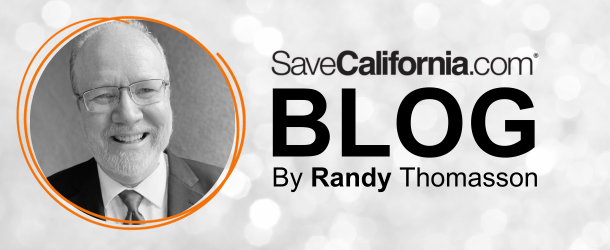
Sept. 28, 2021 update: See my latest blog on this for the best information
Sept. 15, 2021 update on two Placer County (northeast of Sacramento) locations providing religious exemption letters, and Peggy Hall too:
1. Update from Destiny Christian Church in Rocklin: “Need a Religious Exemption? We are no longer offering religious exemptions during service. To apply for a religious exemption form, please click here.”
2. New religious exemption letter being issued in Roseville: Pastor and restaurateur Matthew Oliver is giving religious exemption letters to people in need.
3. California medical freedom and health expert Peggy Hall is offering tips for success with a draft religious freedom letter on her site. This is probably your best way to achieve your religious exemption in California. Her tips include “How to prepare,” “Top mistakes to avoid,” “What NOT to put in your request,” and “How to appeal.”
Do you know that in the United States of America, there is a widely-recognized exemption to vaccines on religious grounds?
Currently, 28 U.S. states honor religious exemptions to mandatory vaccines for schoolchildren. This obviously also applies to adults in the civilian population, who, until this year, have never been subjected to mandatory vaccinations.
Notably, the U.S. Civil Rights Act of 1964 protects religion as a civil right:
SEC. 2000e. [Section 701]
For the purposes of this subchapter-(j) The term “religion” includes all aspects of religious observance and practice, as well as belief, unless an employer demonstrates that he is unable to reasonably accommodate to an employee’s or prospective employee’s religious observance or practice without undue hardship on the conduct of the employer’s business.
SEC. 2000e-2. [Section 703]
(a) Employer practices
It shall be an unlawful employment practice for an employer –
(1) to fail or refuse to hire or to discharge any individual, or otherwise to discriminate against any individual with respect to his compensation, terms, conditions, or privileges of employment, because of such individual’s race, color, religion, sex, or national origin; or
(2) to limit, segregate, or classify his employees or applicants for employment in any way which would deprive or tend to deprive any individual of employment opportunities or otherwise adversely affect his status as an employee, because of such individual’s race, color, religion, sex, or national origin.
In addition, the 2021 compliance manual of the Equal Employment Opportunity Commission (EEOC) recognizes all types of religions and religious practices:
1. Religion
Title VII defines “religion” to include “all aspects of religious observance and practice as well as belief,” not just practices that are mandated or prohibited by a tenet of the individual’s faith.[18] Religion includes not only traditional, organized religions such as Christianity, Judaism, Islam, Hinduism, Sikhism, and Buddhism, but also religious beliefs that are new, uncommon, not part of a formal church or sect, only subscribed to by a small number of people, or that seem illogical or unreasonable to others.[19] Further, a person’s religious beliefs “need not be confined in either source or content to traditional or parochial concepts of religion.”[20] A belief is “religious” for Title VII purposes if it is “religious” in the person’s “own scheme of things,” i.e., it is a “sincere and meaningful” belief that “occupies a place in the life of its possessor parallel to that filled by . . . God.”[21] The Supreme Court has made it clear that it is not a court’s role to determine the reasonableness of an individual’s religious beliefs, and that “religious beliefs need not be acceptable, logical, consistent, or comprehensible to others in order to merit First Amendment protection.”[22] An employee’s belief, observance, or practice can be “religious” under Title VII even if the employee is affiliated with a religious group that does not espouse or recognize that individual’s belief, observance, or practice, or if few – or no – other people adhere to it.[23]
Religious beliefs include theistic beliefs as well as non-theistic “moral or ethical beliefs as to what is right and wrong which are sincerely held with the strength of traditional religious views.”[24] Although courts generally resolve doubts about particular beliefs in favor of finding that they are religious,[25] beliefs are not protected merely because they are strongly held. Rather, religion typically concerns “ultimate ideas” about “life, purpose, and death.”[26]
Courts have looked for certain features to determine if an individual’s beliefs can be considered religious. As one court explained: “‘First, a religion addresses fundamental and ultimate questions having to do with deep and imponderable matters. Second, a religion is comprehensive in nature; it consists of a belief-system as opposed to an isolated teaching. Third, a religion often can be recognized by the presence of certain formal and external signs.’”[27]
ACT NOW FOR YOURSELF AND OTHERS: If you or a loved one are threatened with coerced “Covid vaccine” injections, a request for a religious exemption needs to be submitted in writing to one’s employer or college.
We already know religious exemptions are being honored at some state universities and some hospitals, such as Dignity Health. Here’s the effectiveness of straightforward religious exemption letters at CSU Chico:
Data breach at California college exposes student requests for COVID vaccine exemptions: Students who said they were Mormon, Catholic and Serbian Orthodox were approved for an exemption. Many who stated the vaccine had fetal tissue and “abortion-derived cells” were denied.
So you definitely want to focus on your religious convictions in your letter. Sometimes less is more. Rest assured this strategy is so strong, even the tyrannical Biden & Co. acknowledges religious exemptions to “the jab”:
Pentagon releases religious exemption guidelines for bypassing mandatory vaccine: The Pentagon on Tuesday released guidelines for how service members could request a religious exemption in lieu of getting the coronavirus vaccine. By mid-September, all active-duty forces in the military will be required to get shots in their arms to counter the coronavirus as cases continue to once again increase nationwide. “There is a religious exemption possibility for any mandatory vaccine, and there’s a process that we go through to counsel the individual both from a medical and from a command perspective about using a religious exemption,” Pentagon press secretary John Kirby said Tuesday.
Here are religious exemption options SaveCalifornia.com knows of:
1. Loving, constitutional Pastor Greg Fairrington of Destiny Christian Church in Rocklin (Placer County) has written (with the help of his attorneys) and signed a religious-exemption letter, which he’s freely giving to people who go through a process.
The latest instructions (Sept. 7) on the church’s website are: “Need a Religious Exemption? We are no longer offering religious exemptions during service. To apply for a religious exemption form, please click here.”
See these helpful links on how individuals can compose their own letter requesting a religious exemption from their employers and universities:
2. Letter template created by Advocates for Faith & Freedom
3. Sample letter created by The Rutherford Institute
4. Titus Institute: Religious exemption process | if your request is denied
5. America’s Frontline Doctors: Good information on religious exemptions
IMPORTANT: You should also seek a low-cost or pro-bono attorney or legal group that will expertly represent you if your employer or college or university doesn’t exempt you from the jab. Among legal groups representing Americans right now are Liberty Counsel, The Rutherford Institute, and Advocates for Faith & Freedom.
But try your religious exemption, which has a good chance of success to protect you from “the jab,” which has already killed tens of thousands of people.




 RSS 2.0 Feed
RSS 2.0 Feed